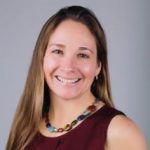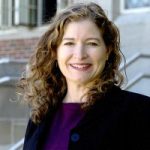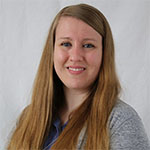 Professor Rebecca Puhl wrote a piece published by The Washington Post on weight stigma around the world. Read the article here.
Professor Rebecca Puhl wrote a piece published by The Washington Post on weight stigma around the world. Read the article here.
Faculty
Terry Berthelot joins NAELA News editorial board
 Terry Berthelot, Assistant Professor in Residence, joined the NAELA (National Academy of Elder Law Attorneys) News editorial board.
Terry Berthelot, Assistant Professor in Residence, joined the NAELA (National Academy of Elder Law Attorneys) News editorial board.
Marlene Schwartz featured in The Verge
 Professor Marlene Schwartz was featured in The Verge for an article, Impossible Foods Eyes Schools for New Customer. Read the article here.
Professor Marlene Schwartz was featured in The Verge for an article, Impossible Foods Eyes Schools for New Customer. Read the article here.
Rebecca Puhl’s article featured in The Conversation, and UConn Today
 Professor Rebecca Puhl wrote a piece for The Conversation about weight stigma around the world: Read the article here. The piece was also featured in UConn Today: Read the article here.
Professor Rebecca Puhl wrote a piece for The Conversation about weight stigma around the world: Read the article here. The piece was also featured in UConn Today: Read the article here.
Rebecca Puhl’s research featured by CNN
 Professor Rebecca Puhl’s multinational research on weight stigma was featured by CNN on June 1st: Read the article here. She was also interviewed by CNN on eating and weight-related issues during the pandemic (June 7th): Read the article here.
Professor Rebecca Puhl’s multinational research on weight stigma was featured by CNN on June 1st: Read the article here. She was also interviewed by CNN on eating and weight-related issues during the pandemic (June 7th): Read the article here.
Eva Lefkowitz cited in The Times (London)
 Professor Eva Lefkowitz cited in The Times (London) in Suzi Godson’s column: https://www.thetimes.co.uk/article/i-cant-believe-he-is-truly-satisfied-jnn7q72k3. Read the article here.
Professor Eva Lefkowitz cited in The Times (London) in Suzi Godson’s column: https://www.thetimes.co.uk/article/i-cant-believe-he-is-truly-satisfied-jnn7q72k3. Read the article here.
Rebecca Puhl featured in APA Monitor article
 Professor Rebecca Puhl was featured in the APA Monitor in an article, The Extra Weight of COVID-19. Read the article here.
Professor Rebecca Puhl was featured in the APA Monitor in an article, The Extra Weight of COVID-19. Read the article here.
Meg Galante-DeAngelis, HDFS Faculty Spotlight, June 2021
Lecturer
 Meg Galante-DeAngelis has been a member of the UConn community for 48 years. She started as a freshman at the Waterbury campus in 1973. As a first generation college student and the first woman in her family to go to college, she did not know what to expect but was soon swept up in the possibilities of what she could study. Her original plan was to become a history teacher, but a Child Development class with the amazing Professor Ruth Frost showed her a new direction. One afternoon, Professor Frost had the class meet at a Head Start program where they observed the children and talked to the staff about their work. She was hooked. As an elementary school child, she had been a part of President Johnson’s War on Poverty Summer Enrichment programs and Prof. Frost opened her eyes to what these programs could do for children from neighborhoods like hers. The next day, she volunteered at Head Start and when she graduated from UConn, her first teaching job was at Head Start. She believes the children in that first class taught her more than she could ever have taught them. They were her teachers and she was their assistant, setting up experiences and environments so that they could discover, and construct an understanding of themselves and the people and the world around them.
Meg Galante-DeAngelis has been a member of the UConn community for 48 years. She started as a freshman at the Waterbury campus in 1973. As a first generation college student and the first woman in her family to go to college, she did not know what to expect but was soon swept up in the possibilities of what she could study. Her original plan was to become a history teacher, but a Child Development class with the amazing Professor Ruth Frost showed her a new direction. One afternoon, Professor Frost had the class meet at a Head Start program where they observed the children and talked to the staff about their work. She was hooked. As an elementary school child, she had been a part of President Johnson’s War on Poverty Summer Enrichment programs and Prof. Frost opened her eyes to what these programs could do for children from neighborhoods like hers. The next day, she volunteered at Head Start and when she graduated from UConn, her first teaching job was at Head Start. She believes the children in that first class taught her more than she could ever have taught them. They were her teachers and she was their assistant, setting up experiences and environments so that they could discover, and construct an understanding of themselves and the people and the world around them.
The UConn Child Development Lab has played a significant role in Professor Galante-DeAngelis’ development as a teacher as well as in her family life. She was among the first students to work in the Child Labs Infant/Toddler classroom when it opened in 1976. Her association with the Child Labs has allowed her to be involved in many ways – as undergraduate and graduate student, observer, learner and worker, in Infant/Toddler and Preschool Master Teacher positions, as Assistant Director/Program Coordinator, and as Faculty Advisor. Her belief in the excellence and high quality of care and education at the Child Labs is born out every day as she reflects on the impact her own five children’s time there had in their lives and development, all graduates of the UConn Child Development Labs. She believes, as do so many parents of children lucky enough to go to the UConn Child Labs, that their time there affirmed them as individuals and helped set them on the path to be strong, kind, empathetic, generous members of the world community.
Professor Galante-DeAngelis feels very lucky in her over thirty years on the UConn faculty that her office has been in the same building as the Child Labs and the sounds of children and the joys of their interactions with the world around them are never far from her. Her work with the Child Labs provided the opportunity to develop relationships with colleagues from other lab schools as part of the Council for Child Development Laboratory Administrators (CCDLA). With a mission of service, training and research, the CCDLA has been an epicenter for shared research, support, problem solving, showcasing of new ideas, and expression of best practices to meet the ever-evolving needs of the Child Development Lab school community. UConn’s Child Development Labs were one of the founding members of the organization in the 1970s. Professor Galante-DeAngelis has been a member since 1987, currently serves on the Board of Directors, and served as the president for 10 years. Two of her proudest memories are working with Charlotte Madison to get the teachers at the Child Labs unionized and to design the CDL Infant Center.
As part of the Early Childhood Specializations faculty, Professor Galante-DeAngelis has loved working with amazing colleagues who share her commitment to children. She is particularly interested in teacher preparation, advocacy for equity, inclusion and social justice, quality care and education for infants and toddlers, and supporting first generation college students. Across her time at UConn, she has taught every UConn course connected to Early Childhood Development and Education. Now is a particularly exciting time for the early childhood field and discipline and Professor Galante-DeAngelis loves watching students prepare for the opportunities and challenges ahead.
The Early Childhood Development and Education courses are at their heart avenues of experiential learning focusing on how child development and the individual child in context shape our best intentional teaching practice. The program’s goal is to support students in the development of the tools they need not only to be consummate professionals but also to be able to acknowledge and celebrate the unique gifts and challenges they bring to the work of human service. Professor Galante-DeAngelis and her colleagues help students to develop active engagement in daily reflection and mindfulness that supports best practice while recognizing individualized self-care practices through self-awareness.
Professor Galante-DeAngelis’ career has afforded her the opportunity to be in the presence of the amazing young people who choose Human Development and Family Sciences as their major. In a world where we often hear about narcissism and cynicism, our students surround us with their optimism and desire to give to others. They believe they can make the world a better place and she knows that they do so just by the mindful, hopeful, positive energy they put out into the world. One of her favorite stories is about one of our Early Childhood students who was at an interview where the interviewer said to her, “You are like a unicorn. I did not know that people with the kind of early childhood training you have had existed in the real world.” Well, they do exist and they are out there making a difference in the lives of children and families every day.
As her students and many colleagues know, her interests outside of UConn are varied. Besides interests in advocacy and social justice, she loves the ocean and hiking in Maine, especially with her children and grandchildren. She has recently been enjoying designing and making toys for her grandchildren. She was trained as a seamstress by her grandmother and in the past has been known for making mid-nineteenth century reproduction clothing for Civil War reenactors and museum docents. She has a lifelong interest in the American Civil War and the lives of women and children during that period. As an amateur genealogist, she is currently working on two projects: her family genealogy, and a project to identify and trace the post-war lives of soldiers who were amongst the most badly wounded in the Battle of Gettysburg.
Professor Galante-DeAngelis is humbled and honored by two recent awards: the HDFS Faculty Teaching Award in 2019 and the UConn-AAUP – Career Teaching Excellence Award in 2020. She loves teaching. It has been her life’s work but like many working in early childhood education, she is accustomed to working under the radar. As she begins to think about retirement, she is excited by the wonderful work of her younger colleagues and she knows that the department and the wonderful students to come are in marvelous hands.
Sarah McKee and Marlene Schwartz featured in UConn Today


Graduate student Sarah McKee and Professor Marlene Schwartz were featured in UConn Today for their work on how color-coded nutrition information helps food pantry clients choose healthier options. Read the article here.
Professor Marlene Schwartz featured in multiple news outlets
 Professor Marlene Schwartz has been featured in multiple news outlets: Scary Mommy- I Have to Protect My Daughter From My Family’s Comments About Her Weight (read the article here), and Health Day- Obesity Costs the Average U.S. Adult $1,900 per Year: Study (read the article here).
Professor Marlene Schwartz has been featured in multiple news outlets: Scary Mommy- I Have to Protect My Daughter From My Family’s Comments About Her Weight (read the article here), and Health Day- Obesity Costs the Average U.S. Adult $1,900 per Year: Study (read the article here).